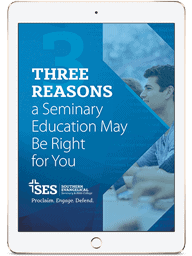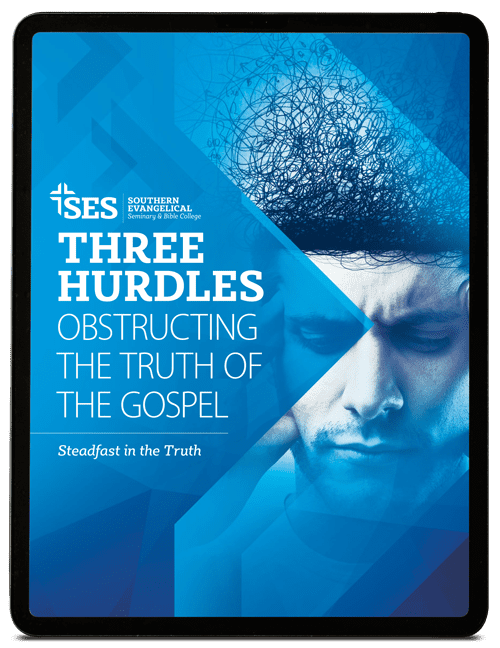As the Enneagram spreads, there is a need for accurate information since it is not readily available and the information is conflicting. People are trusting others that the Enneagram is valid rather than investigating.
There are 5 issues:
- What is the Enneagram and where did it come from?
- What are the problems with its promotion?
- How does it seem to work if it’s not valid?
- Response to the charge that the Enneagram commits the genetic fallacy
- What are the potential long term effects of the Enneagram trend?
What is the Enneagram and where is it from?
The word comes from the Greek words “ennea” for “nine” and “gramma” for “writing” or “drawing.” The Enneagram is a nine-sided diagram with 9 points.
The Enneagram began with George Gurdjieff (1866-1949), an Armenian-Greek who was a mystic and spiritual philosopher. Raised Eastern Orthodox, he left that for a spiritual journey. He and his followers claimed he had encounters with spiritual teachers, none of which was ever verified. However, both Gurdjieff and his Russian pupil, P.D. Ouspensky, had a large influence on the later New Age movement.
Gurdjieff devised a 9-sided figure called an Enneagon or Enneagram which he claimed was a picture of cosmic reality and demonstrated the mysterious laws of 3 and 7 which are the basis of all reality. This is the real, original Enneagram, which had no reference to personality traits. Followers of Gurdjieff claimed he got this from a secret Sufi brotherhood, the existence of which has never been verified (despite at least one fake account that was debunked). Other teachings were given using the Enneagram as a diagram for his teachings that man is asleep and must become a “conscious” being.
Ouspensky (1878-1947) wrote books on Gurdjieff’s teachings called the “Fourth Way.” This included Gurdjieff’s views of the Enneagram in Ouspensky’s book In Search of the Miraculous (published posthumously). The enneagram is
“…a ‘cosmic blueprint’ — a diagrammatic representation of the fundamental laws that create and sustain everything from the whole of Creation to individual organisms. The Enneagram demonstrates the interaction of the Law of Three and the Law of Seven that gives rise to all phenomena” and “All of Creation, the Physical world, the Subtle world, the Causal world and beyond that the Absolute – everything is contained in 9.” (https://www.ouspenskytoday.org/wp/about-teaching-today/enneagram/).
The history of the Enneagram continues with Oscar Ichazo (b. 1931), a spiritual teacher who ran an occult school in Arica, Chile. Ichazo taught esoteric ideas, including the Enneagram, which he called the Enneagon, to which he added his own ideas of “ego fixations.” Due to later lawsuits, contradictory information came out on exactly what Ichazo taught.
Ichazo’s student, Claudio Naranjo (b. 1932), a Chilean psychiatrist and spiritual seeker, took the Enneagram teachings to the Esalen Institute in Big Sur, California, an experimental center of edgy ideas and people doing psychedelics (Esalen played a crucial role in the human potential movement and influenced the New Age). Naranjo came up with the 9 personality types.
Naranjo claimed later in a video that he and Ichazo made up the idea that the Enneagram was ancient when they knew it wasn’t. Naranjo also claimed that he based the 9 types on his observations but “mostly” via automatic handwriting (this 10-minute video is at https://www.youtube.com/watch?v=wlO3KJWnNd8).
One of Naranjo’s students at Esalen, the Jesuit Bob Ochs, took the Enneagram to the Roman Catholic world and taught it to several priests. Richard Rohr, a Franciscan priest, later co-wrote The Enneagram: A Christian Perspective. Rohr, who had much influence on Rob Bell and Brian McLaren, continued to have an influence on the developing Progressive movement in Christianity. It is the popularity of his book that got the Enneagram into the evangelical church. One major avenue was via books by his students Chris Heuertz, The Sacred Enneagram (Zondervan), and Ian Cron and Suzanne Stabile who wrote The Road Back to You (InterVarsity Press).
The Enneagram migrated from Esalen also to the New Age where it became a big hit with many books churned out. The psychic Helen Palmer became a self-described expert on it and taught workshops and classes, gradually spreading it in New Age venues. This included New Age psychologists and therapists who wedded their spiritual views with the Enneagram. The thrust of the Enneagram in the New Age was/is a gnostic seeking of the “True Self” or “divine Self.”
The Enneagram Institute was founded by former Jesuit Don Riso and Russ Hudson, both New Agers. It is not a scholarly or academic institution.
What are the problems with its promotion as a personality test?
The Enneagram is promoted with false information, such as claims that it is ancient and that it has Christian origins in a 4th-century monk, Evagrius Ponticus, and/or Ramon Llull, a medieval Catholic. There is no evidence for this and it has been debunked. Nevertheless, these ideas are still promoted in the Christian Enneagram books, by Christian Enneagram teachers, by pastors who support the Enneagram, and by others.
Most assume the Enneagram is a valid personality test but it has no basis in psychological studies or research. It is entirely subjective and arbitrary. The Enneagram is interpreted in many different ways depending on the views of the person or schools of thought doing the interpretation.
The fact that it is not valid means that people are seeing themselves in certain ways that may be inaccurate. They trust the Enneagram books and teachers which may lead to accepting other false ideas since the Enneagram is surrounded by false beliefs. Many teachers and pastors who promote or teach the Enneagram have recommended Richard Rohr or his books, which is a serious problem since he is heretical.
How Does It Seem to Work?
The Enneagram can work by confirmation bias, by what people already know about themselves and read into it. Or they trust the information and believe it. It’s a subjective technique so there is no way to even measure that “it works.” It depends on what people feel and think about themselves, and on other factors that may be part of the process of self-evaluation.
Another system that is comparable for comparison’s sake is astrology. Both astrology and the Enneagram started out with no reference to personality types. Personality profiling according to zodiac signs and planetary positions developed in the 19th century from the field of psychology. Many believe they fit their zodiac signs or birth charts, even more than the number of people who have done the Enneagram since astrology has been around longer and has more of a worldwide following (“Evidence suggests that over 90% of adults know their sun (zodiac) signs. Some surveys also indicate that well over half agree that the signs’ character descriptions are a good fit” at http://theconversation.com/how-many-people-actually-believe-in-astrology-71192). Yet astrology is not valid even though tens of thousands of people would argue that it helps them and is accurate.
Response to claim that opposing the Enneagram commits the genetic fallacy
Much of the resistance to the Enneagram facts has been the straw man argument that opposing the Enneagram is committing the genetic fallacy. There are two parts to the response:
It is not a genetic fallacy if the origin matters. In this case, the Enneagram was never a personality test to begin with. It did not develop through any scholarly or psychological research. It developed in the hothouse of the occult and New Age ideas and allegedly via the occult method of automatic writing. One would want a valid personality assessment to have a valid origin in professionally accredited psychological sources.
Secondly, the Enneagram is arbitrary, subjective, and invalid. The fact of its origins, however, is partly what makes it invalid.
Long Term Effects?
The Enneagram is taught in the church, not as a mere personality indicator, but as a way to know God. To grow spiritually, and even for sanctification. Since much of the spiritual ideas are from Richard Rohr and his followers and students, the spiritual ideas are at the very least suspect and, in many cases, are outright unbiblical.
Christians know God through scripture, prayer, and worship. Sanctification is by the Holy Spirit as one grows in Christ. The Bible is sufficient in giving Christians the means for a mature faith and walk.
There is the danger of becoming self-absorbed and the danger of seeing one’s self through the filter of the Enneagram instead of the Bible. The Enneagram, if relied on, becomes a barrier to the Holy Spirit showing Christians where growth is needed through God’s word.
Another danger is that Rohr’s ideas are part of some of the Enneagram teachings. His teaching on the True Self and the need to develop higher levels of understanding are spiritual poison derived from unbiblical teachings.
Since the Enneagram is false in nature, it means that Christians who recommend it are promoting a false idea and a false method for self-evaluation. How can Christians proclaim the truth of Jesus Christ while accepting a false tool?

Download Your FREE eBook!
- Reading Books and Listening to Talks is Not Enough
- Not All Apologetics Methods Are Created Equally
- A Degree is More Than a Piece of Paper







